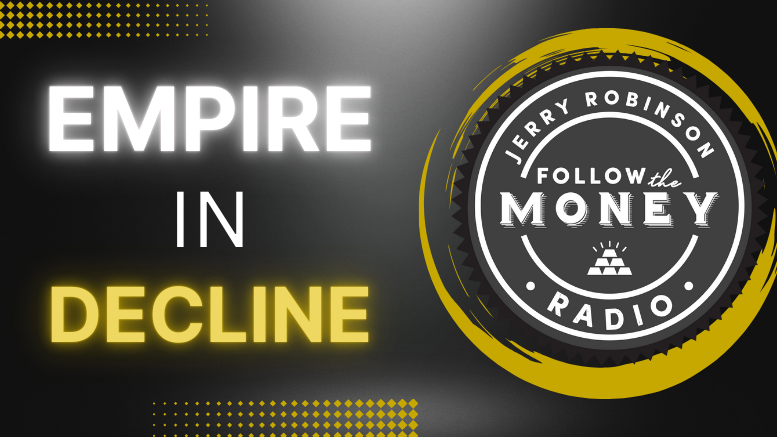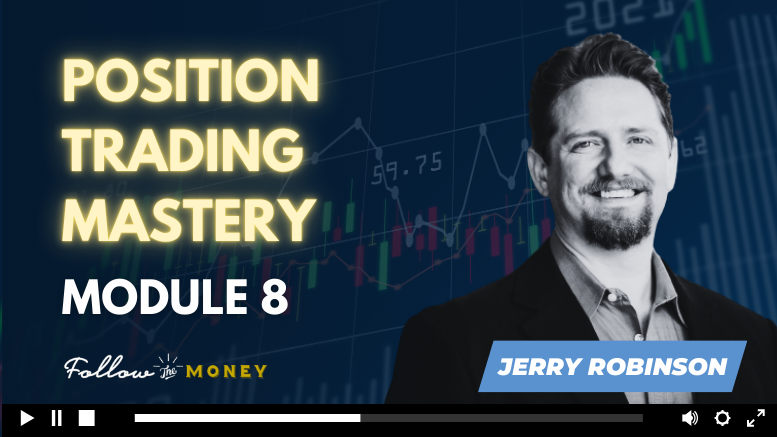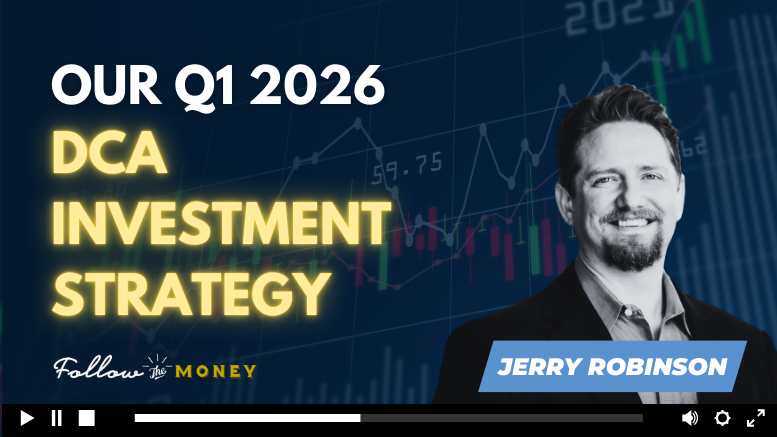
SHOW NOTES – 2/22/14
The Case for Europe
Plus, an excerpt from Jerry Robinson’s recent interview on the Financial Survival Network
_________________________________
Segment One : Why the Euro is Here to Stay
Plus, Jerry Robinson explains: “What exactly is a recession?”
On February 17, FTMDaily briefed its readers about the latest economic news out of Europe, namely that the four largest European economies grew in unison for the first time in three years. The news comes out of the Telegraph-UK and says:
The eurozone has taken a major step towards recovery with the single currency’s four major economies all growing for the first time in almost three years. Germany, Italy, and France all registered expansion in the final three months of 2013, official figures showed, with France avoiding a dreaded double-dip recession and Germany, the region’s biggest economy, performing better than had been expected.
Along with Spain, which last month recorded its best quarterly growth since 2008, the countries led the 18-currency bloc to growth of 0.3pc in the final three months of 2013.
Alright, so the last time Europe’s four biggest economies grew in unison like this was the first quarter of 2011. France was the big surprise here. It was beginning to look as if the French economy was going to experience a double-dip recession.
To better understand what is happening in France and all over Europe, let’s dig a little deeper into some basic economics. What exactly is a recession?
Alright, to understand what a recession is, we first have to understand what the business cycle is? And in order to understand what the business cycle is, you have to know what GDP means… (GDP is the acronym for “Gross Domestic Product.”)
Briefly, a nation’s GDP – or gross domestic product – is simply a computation to determine the value of a nation’s total economic output over a given period of time. By economic output, I mean, almost every bit of reported economic activity including all of the goods and services produced within that nation.
Economists like to play with numbers and plot them and chart them and graph them. (To be quite frank with you, I’m afraid that over the years, the academic discipline of economics have become overly obsessed with quantitative methods. Advanced economics today is little more than applied high-level mathematics. But let’s save that discussion for another day.)
My point is, that, economists can view a nation’s GDP figures on a monthly, quarterly, or an annual basis.
Alright, so there we have it. GDP is simply the total economic output of a particular nation.
Now, what is the business cycle?
The business cycle is interesting because it is simply a way of interpreting GDP figures over time.
The business cycle has two major economic themes: expansion and recession. Expansions occur when GDP figures are rising, and recessions occur when GDP figures are contracting. According to economists, economies move from a period of expansion – which is defined as a period of time in which unemployment is shrinking while personal incomes and consumption is increasing – to a period of recession. And the cycle begins all over again as the recession gives way to an expansion, and on and on it goes.
Determining where a particular nation’s economy is in relation to its business cycle has been a skill of some of the greatest international investors. However, today, with all of the financial distortions created by the Federal Reserve’s poor economic policies, including three rounds of quantitative easing – which by the way have not solved America’s financial problems, but only exacerbated them – but with all of the distortions created by the world’s money-printing central banks, it has become virtually impossible to use the business cycle model with any accuracy anymore.
So, finally, to answer the original question: What is a recession?
Well, in the United States, a recession is defined as a significant decline in economic activity (i.e. GDP) that lasts more than a few months.
Don’t you love that definition! That is actually the National Bureau of Economic Research’s official definition for a recession… a slowdown in economic growth that “lasts more than a few months.”
What’s “more than a few months” even mean?
I prefer Europe’s definition of a recession. It’s simple. Across the European Union, a nation is said to be in a recession if its GDP figures contract for two consecutive quarters.
Now, back to the Telegraph story I mentioned at the beginning…
Based on these latest GDP figures, the EU has now been expanding three quarters in a row. Pockets of confidence are beginning to emerge across Europe’s economy. While Europe’s economy as a whole is still underperforming the U.S. and the U.K., things have certainly been improving on paper for Europe.
This is big news. There have been a lot of naysayers, dare I say many gloomsters and doomsters, who were certain that the European Union would never gain any traction. The EU is the dream of the globalist elites. A united Europe has been the dream of generations. Napoleon sought to unite the continent until he met his match in the Duke of Wellington near a little town in Belgium called Waterloo.
And of course, there were the visionaries who longed for a united Europe, such as Victor Hugo who said:
A day will come when we shall see… the United States of America and the United States of Europe face to face, reaching out for each other across the seas.
And we don’t have time to go into all of the modern attempts at European unification and integration by force including the terrible reigns of terror by Italy’s Mussolini and of course, Adolf Hitler’s Nazi Germany.
Europe has been history’s bloodiest continent. It seems every century spanning back for the past two millennia, there have been numerous power struggles, which often devastated the continent. The fact that Europe is united and living in relative peace is a new phenomenon.
I expect the European markets to outperform in the years ahead, despite all the naysayers. However, this May, Europe will be holding major elections to the European Parliament in all member states of the EU. These elections are extremely important as they will, in many ways, decide whether the Europhiles or the Euroskeptics will gain dominance across the region.
While I sympathize greatly with the Euroskeptics, I am not at all convinced that the people will rise up in May and demand the end of the EU. Instead, I expect the Euroskeptics to perform poorly across most of Europe, which will embolden the dream of a united Europe even more in the months and years ahead.
Update for Precious Metals Investors
Tom Cloud – Precious Metals Advisor
 Tom Cloud joins us for the latest in the gold and silver markets and shares some of the fundamental and technical factors that are affecting prices right now.
Tom Cloud joins us for the latest in the gold and silver markets and shares some of the fundamental and technical factors that are affecting prices right now.
Precious Metals Investing 101 – Free Educational Resources
Click here for access to over 10 hours of free precious metals investing educational resources >>
Segment Two : Is China’s $24 Trillion Credit Bubble About To Pop?
An excerpt from Jerry Robinson’s recent interview on the Financial Survival Network
Jerry Robinson is interviewed by Kerry Lutz of the Financial Survival Network about China’s staggering $24 Credit Bubble. At some point this bubble is going to pop. No one knows when, but that it will is inevitable. When it does happen, the results will be felt around the world. China’s debt is greater than the United States and Japan’s combined. The impact will be enormous and Jerry believes you must be prepared for this eventuality.
Jerry also discusses this weekend’s Liberty Mastermind Symposium in Las Vegas, where Jerry is joined by 14 other influential thought leaders to help prepare people for the impending economic collapse.
INVESTING IDEA OF THE WEEK >>
Jay Peroni – Certified Financial Planner
In an effort to find stocks with explosive growth potential, I look for things like a pivotal earnings report, FDA approval of a new drug, a hot or new product, or a major developing demographic trend like the aging of Baby Boomers, the emerging Chinese middle class, or U.S. energy production. One company that still has a lot of room to grow and fits the mold of a game changer is Qihoo 360 Technology (QIHU). It offers Internet and mobile security products as well as internet marketing services and web games developed by third parties.
BOTTOM LINE: With Internet security becoming more of a focus, Qihoo 360 (QIHU) shares should continue to soar. My 12-month price target is $140, representing a 30% gain from current levels.
Disclaimer: Investing involves risk. Always do your own due diligence and consult a trusted financial professional before making any investing or financial decisions. Jay Peroni is a Certified Financial Planner and is part of our Christian Advisor Referral. FTMDaily is affiliated with Jay Peroni and Faith Based Investor, LLC.
Recent Podcasts by Jerry Robinson
DISCLAIMER: The above trading ideas are from my own personal stock watchlist and are for educational and informational purposes only. They are NOT specific buy recommendations. Trading stocks is risky and you could lose all of your money. Trade at your own risk. Jerry Robinson is not an investment advisor. You should always consult a trusted financial services professional before making any financial or investment decisions. READ FULL DISCLAIMER.




 Tom Cloud joins us for the latest in the gold and silver markets and shares some of the fundamental and technical factors that are affecting prices right now.
Tom Cloud joins us for the latest in the gold and silver markets and shares some of the fundamental and technical factors that are affecting prices right now. 




